Search
Remove Ads
Advertisement
Summary 
Loading AI-generated summary based on World History Encyclopedia articles ...
Search Results

Definition
Fates
The Fates (also known as the Moirai in Greek mythology) are three sister goddesses responsible for assigning destinies to mortals at their birth, a human's lifespan, and the timing of their death. The golden thread they spin represents each...
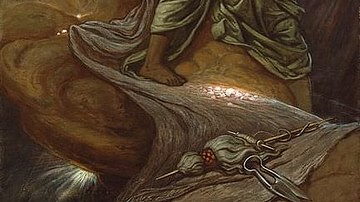
Image
The Fates Gathering in the Stars
The Fates Gathering in the Stars by Elihu Vedder, 1887 CE, now in the Art Institute of Chicago. This image depicts the three Greek Fates - Clotho, Lachesis, and Atropos - spinning the thread of life, then marking it's length and cutting...
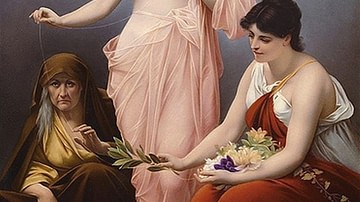
Image
The Three Fates
The Three Fates, oil on canvas by Paul Thumann, 19th century.
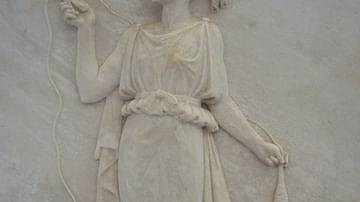
Image
Atropos, One of the Fates
A relief depicting Atropos, one of the Fates of Greek mythology, cutting the thread of life.

Article
Hercules and Alcestis: Personal Excellence & Social Duty
For the ancient Greeks, the quality of arete (personal excellence) and the concept of eusebia (social duty) were most important. Aristotle discusses both of these at length in his Nichomachean Ethics and relates arete to eudaimonia - translated...

Definition
Horae
The Horae (Horai, sing. Hora) were the personification and goddesses of the seasons and the hours and, later on, were regarded as goddesses of order and justice in Greek mythology. They were the daughters of Zeus and the Titaness Themis and...
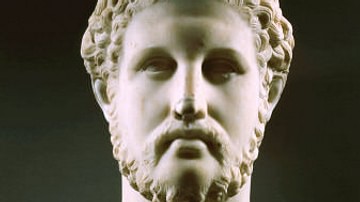
Article
Diodorus Siculus on Fate and Philip of Macedon
Diodorus Siculus, the 1st century BCE historian, took great pride in precision of description but, even so, could not refrain from adding his own personal views and interpretations of historical events and persons. In the following passage...
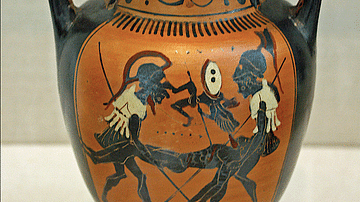
Definition
Thanatos
Thanatos is the personification of Death in Greek mythology. He is the son of Nyx (Night) and the twin brother of Hypnos (Sleep). Some sources also name Erebus (Darkness) as his father. As the personification of Death, Thanatos works under...

Video
The Moirai and Erinyes of Greek Mythology
The Moirai and the Erinyes are the Fates and the Furies of Greek mythology. The Moirai, which in Greek means parts or allotted portions, were the three goddesses of fate and destiny. Clotho, the spinner, Lachesis the disposer of lots, and...
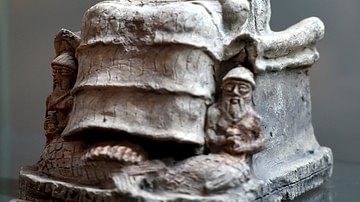
Article
Enki's Journey to Nippur
Enki's Journey to Nippur (c. 2000 BCE) is a Sumerian origin myth explaining the creation of the temple at Eridu by the god Enki and how musical instruments were ordained for use in festivals in ancient Mesopotamia. The poem formed part of...